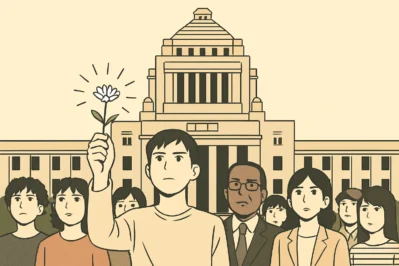Level Up Your Korean: Advocating for Rare Disease Cures
Hello! This is [매일한글], here to upgrade your Korean skills!
Today, we’re moving beyond everyday conversation and stepping into the world of formal, persuasive Korean. Have you ever wanted to understand a news editorial, a formal announcement, or a public statement in Korean? This lesson is for you! We’ll be learning the vocabulary and expressions needed to discuss important social issues.
Specifically, we’ll focus on how to advocate for change. In Korea, there’s a growing public conversation about the need for better support and research for rare diseases. By the end of this post, you’ll be able to understand the language used in these discussions and even form your own powerful, persuasive sentences. Let’s get started!
Core Expressions for Making Your Voice Heard
Here are some key expressions you’ll encounter in formal statements and news articles on social issues.
1. -을/를 촉구하다 (to urge / to call for)
- Pronunciation [Romanized]: -eul/reul chok-gu-ha-da
- English Meaning: To strongly urge; to call for; to demand action.
- Detailed Explanation: This is a very strong, formal verb used in official statements, protests, and petitions. It’s much more forceful than simply ‘요청하다’ (to request). When a civic group or a political party 촉구하다, they are publicly and powerfully demanding that a government body or company take a specific action because it is critically necessary.
2. 시급하다 (to be urgent)
- Pronunciation [Romanized]: si-geup-ha-da
- English Meaning: To be urgent; to be pressing.
- Detailed Explanation: While ‘급하다’ can describe a personal feeling of being in a hurry, 시급하다 describes a situation or problem that requires immediate attention on a larger, often societal, scale. It implies that delaying a solution will have serious consequences. You’ll often see it used with nouns like ‘문제’ (problem), ‘과제’ (task), or ‘대책’ (countermeasure). For example, “희귀 질환 대책 마련이 시급합니다.” (The establishment of countermeasures for rare diseases is urgent.)
3. 제도적 장치 (institutional mechanism / systemic framework)
- Pronunciation [Romanized]: je-do-jeok jang-chi
- English Meaning: An institutional mechanism; a systemic framework; a system in place.
- Detailed Explanation: This is an advanced term perfect for C1 learners. Let’s break it down: ‘제도’ (system/institution) + ‘-적’ (a suffix that creates an adjective) + ‘장치’ (device/mechanism). Together, it refers to the official laws, policies, and structures that are created to solve a problem or manage a situation. It’s a very formal way to say “a proper system.”
4. 대책을 마련하다 (to prepare/establish countermeasures)
- Pronunciation [Romanized]: dae-chaek-eul ma-ryeon-ha-da
- English Meaning: To prepare, establish, or devise countermeasures or a plan.
- Detailed Explanation: ‘대책’ means a countermeasure or a plan to deal with a problem. ‘마련하다’ means to prepare or arrange something. In a formal context, the phrase 대책을 마련하다 means to create and establish a concrete plan of action to tackle a specific issue. It’s a standard phrase in news reports and policy discussions.
Example Dialogue
Let’s see how these expressions are used in a conversation between two colleagues, Min-jun and Ji-hye, discussing a news report.
A (민준): 지혜 씨, 희귀 질환 환자 지원에 대한 뉴스 기사 봤어요? 시민 단체가 정부에 성명서를 발표했더라고요.
(Ji-hye, did you see the news article about support for patients with rare diseases? A civic group released a statement to the government.)
B (지혜): 네, 봤어요. 치료제 개발을 위한 정부의 적극적인 지원을 촉구하고 있었어요. 정말 시급한 문제라고 생각해요.
(Yes, I saw it. They were urging the government to provide active support for developing treatments. I think it’s a truly urgent issue.)
A (민준): 맞아요. 안정적인 연구와 치료가 가능하도록 확실한 제도적 장치가 필요해요. 말뿐인 약속은 의미가 없죠.
(That’s right. A solid institutional mechanism is needed to enable stable research and treatment. Empty promises are meaningless.)
B (지혜): 그럼요. 정부가 구체적인 대책을 마련해서 하루빨리 실행에 옮겼으면 좋겠어요.
(Of course. I hope the government establishes a concrete plan and puts it into action as soon as possible.)
Culture Tip & Trend Deep Dive
In Korea, public discourse on social issues is very active. When it comes to topics like healthcare, you’ll often see these formal expressions used by:
- Civic Groups (시민 단체): These non-governmental organizations play a huge role in advocating for specific causes. They frequently issue official statements (성명서) that use words like 촉구하다 and 시급하다.
- News Media: Editorials (사설) and in-depth news reports heavily feature this vocabulary to analyze government policy and call for action. Understanding these terms is key to reading Korean news at a high level.
- Public Petitions (국민청원): The concept of citizens directly petitioning the government is deeply ingrained. Petitions often use powerful, persuasive language to argue why a 제도적 장치 needs to be created or why the government must 대책을 마련하다.
While these terms are formal, the issues they address are often discussed passionately on social media by younger generations, who share news articles and add hashtags to raise awareness, bridging the gap between formal advocacy and everyday digital activism.
Wrap-up & Practice Time!
Great work today! We’ve learned some powerful, high-level Korean expressions that are essential for understanding and participating in important social discussions. You can now recognize the language of advocacy in news articles and formal statements.
Now, let’s put your knowledge to the test!
- Fill in the blank:
정부는 환자들을 위해 __________ 지원책을 마련해야 한다.
(The government must prepare __________ support measures for the patients.)
a) 시급한 (urgent)
b) 촉구하는 (urging) -
Sentence Making:
Using the verb 촉구하다, write a short sentence in Korean about an issue you care about (e.g., environmental protection, animal rights).
Don’t be shy! Leave your answers and sentences in the comments below. We’d love to see you use what you’ve learned






